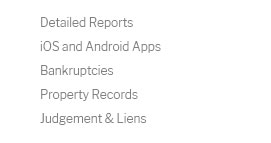 |
 |
|---|
|
|
|---|
 |
 |
 |
 |
|---|---|---|---|
 |
 |
 |
|
 |
|||
 |
 |
 |
|
 |
|||
 |
 |
 |
|
 |
|||

how to search public records effectively and confidentlyStart with official sourcesBegin at the county or state level: clerk of court, recorder, assessor, and judiciary portals often provide free indexes with small fees for documents. For federal cases, PACER offers broad coverage. These sites may look dated, but they usually hold the authoritative version and list exact case numbers, document types, and dates. Compare popular toolsCommercial aggregators compile data across jurisdictions and add handy filters, alerts, and one-stop reports. They are fast for reconnaissance, while government portals are better for final confirmation. When time is short, start wide with an aggregator; when accuracy matters most, pull the original record from the source.
Search strategy and verificationUse exact names, known addresses, and date ranges; try spelling variants and middle initials. Cross-check results between sources, save citations, and review update timestamps. Respect privacy laws and comply with permissible-use rules.
|
|---|